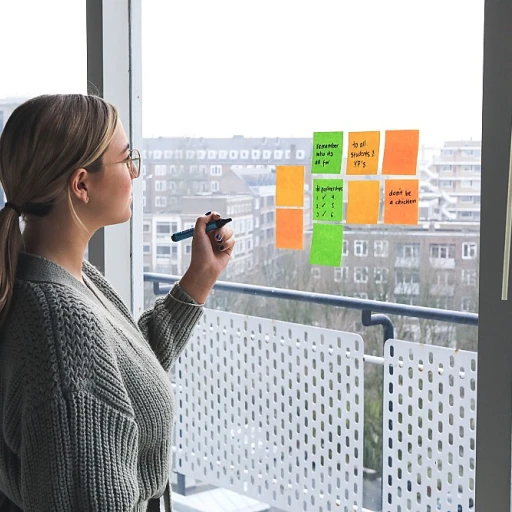
Understanding the Impact of Back-to-Back Interviews
The Domino Effect of Scheduling Interviews Back-To-Back
Jumping from one interview to another without pause can have noticeable consequences for both the interviewer and the candidate. When consecutive interviews are scheduled too closely, the hiring team may experience burnout, detracting from their ability to effectively assess each candidate. This not only affects the overall hiring process but can also lead to errors in judgments and ultimately, a less than optimal hire. There is often insufficient time for the interviewer to adequately review their interview questions or even to take informative notes about the previous candidate. This rushed environment might leave little room for reflection on the conversations held, potentially diminishing the quality of the subsequent interview session. From the candidate's perspective, the experience can be equally challenging. Candidates who face back-to-back interviews may find themselves overwhelmed, which can hinder their performance as they navigate through the hiring process. Allowing some breathing room not only contributes to a more positive candidate experience but also enhances their ability to present their best self. Moreover, the scheduling software or tools used to arrange these back interviews need to be optimized for flexibility and adaptability. Implementing some best practices in the interview scheduling process can aid in providing enough buffer time for preparation and debriefing, leading to a more effective interview schedule. For those interested in understanding more about who within the team is typically responsible for conducting these critical interview sessions and evaluating the candidates, you can explore this detailed insight.Pros of Consecutive Interview Scheduling
Advantages of Consecutive Interview Scheduling
When it comes to the interview process, scheduling interviews back to back presents several advantages that make it a popular choice for many hiring managers. While this approach comes with its own set of challenges, it offers a range of benefits that can enhance both the hiring process and candidate experience.- Time Efficiency for Interviewers: Scheduling interviews consecutively allows the hiring team to allocate specific blocks of time during the day exclusively for interviewing candidates. This minimizes disruptions to their regular duties and makes the scheduling process more efficient.
- Streamlined Candidate Evaluation: Having back-to-back interviews enables interviewers to easily compare candidates against the same criteria when impressions are still fresh in their minds. This continuous round of interviews helps in maintaining a consistent evaluation process.
- Effective Use of Scheduling Software: Tools such as Calendly make it easier to manage consecutive interview schedules, reducing the administrative burden on hiring managers. This can lead to a more organized and predictable schedule.
- Improved Experience for Candidates: While scheduling interviews in quick succession, candidates appreciate the reduced period of uncertainty as they often receive timely feedback on their job status, enhancing their candidate experience.
- Enhanced Coordination Among Team Members: When interviews are scheduled back to back, the entire hiring team remains engaged, leading to more cohesive and well-rounded interview questions. This ensures that all team members are aligned with the evaluation criteria.
Cons of Back-to-Back Interviews
The Hidden Challenges of Tight Interview Slots
Scheduling interviews back-to-back can indeed enable efficient processes, yet one cannot overlook the potential pitfalls that come with such an approach. These challenges are crucial to address to ensure both the interviewer and candidate experience remain optimal.One of the primary concerns revolves around the quality of each session. With tightly packed interview schedule, interviewers may face significant mental and physical exhaustion. This could lead to a decrease in the attention and engagement they can offer each candidate, potentially impacting the overall effectiveness of the hiring process.
Moreover, pressure to stick to an unyielding schedule can compromise the opportunity for spontaneous, insightful exploration within the interview. This limitation can hamper the interviewer’s ability to delve deeper into a candidate's suitability, leaving essential questions unasked. Candidates, on the other hand, may feel rushed, which can affect their ability to perform to their best and provide thoughtful responses.
Another factor is the risk of logistical missteps. Mistakes in the scheduling process, especially without the aid of reliable scheduling software, could lead to overlaps or miscommunications about time slots. Such errors not only affect the interviewer’s day but can also create a negative impression on the candidate, causing disruptions in their day and potentially impacting their perception of the hiring team.
Lastly, varying interview types necessitate different considerations. While some positions may require only one round, others might involve a second interview, adding layers of complexity to back-to-back interview days.
Understanding these cons highlights the need for strategies that can mitigate their impact, ensuring the best outcomes for both interviewers and candidates. Being mindful of these challenges is pivotal in refining interview scheduling practices to attract and select top talent effectively.
Strategies for Effective Back-to-Back Interviewing
Effective Tactics for Consecutive Interviews
Conducting interviews back to back can be challenging, but implementing effective strategies can alleviate some of the stress for both the hiring team and candidates. Here are some tactics to optimize the process:- Prepare and Prioritize: Before the interview day, ensure the interviewers have reviewed the candidate's resume and any pre-interview notes. This preparation helps the hiring team tailor questions more effectively, enhancing the overall candidate experience.
- Use Scheduling Software: Utilizing scheduling tools like Calendly can simplify the scheduling process, ensuring a smooth flow between interviews and reducing logistical headaches for the hiring managers.
- Create Buffer Times: Incorporating short breaks between back interviews allows interviewers time to reset, review notes, and prepare for the next candidate. This practice helps maintain a high level of energy and focus, benefiting both the interviewer and the candidate.
- Coordinate with Team Members: It's crucial for all team members involved in the interview process to be aligned regarding the interview schedule. Clear communication prevents overlaps and ensures everyone is on the same page about the candidate timeline.
- Prepare Diverse Questions: Having a set of diversified interview questions for each stage of the process keeps the interviews engaging and thorough. Diverse questions help evaluate candidates holistically, especially when interviewing top talent.
Balancing Interview Schedules for Optimal Results
Finding the Right Balance for Interview Success
Balancing interview schedules is crucial to optimizing the hiring process and ensuring a positive candidate experience. The key to effective scheduling lies in striking the right balance between efficiency and candidate comfort. Here are some considerations to keep in mind:- Consider the Interviewer's Load: Scheduling back-to-back interviews can lead to interviewer fatigue, affecting their ability to assess each candidate thoroughly. It's important to ensure that your team members are not overwhelmed.
- Candidate Convenience: Hiring managers should be flexible with interview timings to accommodate the candidate's time zone and availability. This can help in presenting a more candidate-friendly process.
- Allow Breathing Room: Building time buffers between interviews can prevent scheduling mishaps and give both candidates and interviewers a chance to regroup and prepare.
- Use Scheduling Tools: Implementing scheduling software like Calendly can streamline the process, allowing for seamless coordination of times and avoiding unnecessary overlaps.
- Adjust Based on Roles: Different roles may require varied interview approaches. For example, a technical role might include multiple, shorter rounds, whereas managerial roles could benefit from longer, more comprehensive sessions.
Keeping these factors in mind ensures that the back-to-back interview scheduling maximizes efficiency without compromising the candidate's comfort or the interviewer's ability to make informed decisions. This balance ultimately enhances the overall hiring experience.
Adapting Interview Strategies to Different Hiring Needs
Customizing Interview Schedules to Fit Your Hiring Needs
Hiring processes vary greatly depending on the role, industry, and specific needs of a company. The challenge lies in adapting interview strategies such as scheduling interviews back to accommodate these diverse requirements. Here are some ways to ensure that your interview schedule aligns well with your hiring objectives:- Understand Team Availability: It is essential to coordinate within your hiring team to ensure all necessary team members are available for each round of interviews. This may involve using scheduling software like Calendly to avoid clashes and ensure efficient time management.
- Assess Role Complexity: The complexity of the role can dictate the length and format of interviews. More challenging positions may require additional rounds or varied interview formats. Tailor your interview questions to assess different competencies and skills.
- Prioritize Candidate Experience: Scheduling should be considerate of the candidate experience. Avoid scheduling back-to-back days if possible to give candidates and the hiring managers enough time to reflect on the interview process.
- Leverage Technology for Flexibility: Use scheduling tools that allow for swift adjustments to the interview schedule. This flexibility is beneficial if a candidate's availability changes or if there's a need to add a second interview, ensuring minimal disruptions.
- Optimize for Best Practices: Incorporate feedback from previous hiring cycles to refine your scheduling process. Listening to both candidates and team members can help identify areas for improvement in the interview schedule.













